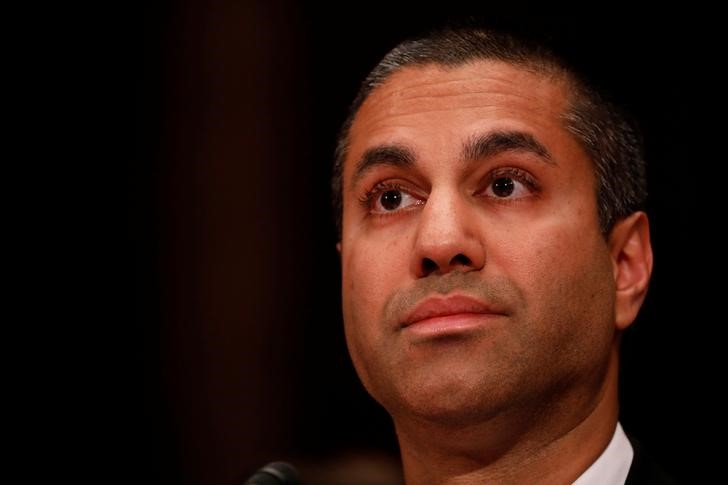By David Shepardson
WASHINGTON (Reuters) - U.S. Senate Majority Leader Mitch McConnell on Tuesday moved to force the Senate to vote later this week on the nomination of Federal Communications Commission Chairman Ajit Pai to serve another five-year term.
The vote on Pai is expected after Democrats plan to harshly criticize him for moving to dismantle Obama-era internet access rules and taking other steps to deregulate U.S. telecommunications rules. McConnell on Tuesday filed a petition to force a vote to end debate on Pai's nomination.
Pai, a former Justice Department, FCC and Capitol Hill staffer, has been moving swiftly to undo many of the regulations adopted by the FCC during the Obama administration since assuming the chairmanship.
Pai joined the FCC as a commissioner in March 2012 and was elevated to chairman by President Donald Trump in January. He would be forced to leave at the end of this year if the Senate does not reconfirm him to a new five-year-term
In April, Pai proposed overturning the landmark 2015 net neutrality rules. On Tuesday, Pai declined to say when he might ask the FCC to give final approval to the proposal.
The rules, which the FCC put in place under Democratic President Barack Obama, prohibit broadband providers from giving or selling access to speedy internet, essentially a "fast lane," to certain internet services over others.
The rules reclassified internet service providers much like utilities. They were favored by web companies like Facebook Inc (NASDAQ:FB), Alphabet (NASDAQ:GOOGL) Inc and others, which said they would guarantee equal access to the internet to all, but opposed by internet service providers, which said they could eventually result in rate regulation, inhibit innovation and make it harder to manage traffic.
Internet providers such as AT&T Inc (NYSE:T), Verizon Communications Inc (NYSE:VZ) and Comcast Corp (NASDAQ:CMCSA) have argued that the net neutrality rules have made investment in additional capacity less likely.
Earlier this year, the FCC voted 2-1 to reverse a 2016 decision that limits the number of television stations some broadcasters can buy.

Pai has said he plans to take a new look at the current overall limit on companies owning stations serving no more than 39 percent of U.S. television households and plans a comprehensive review of close to 1,000 pages of media regulations.